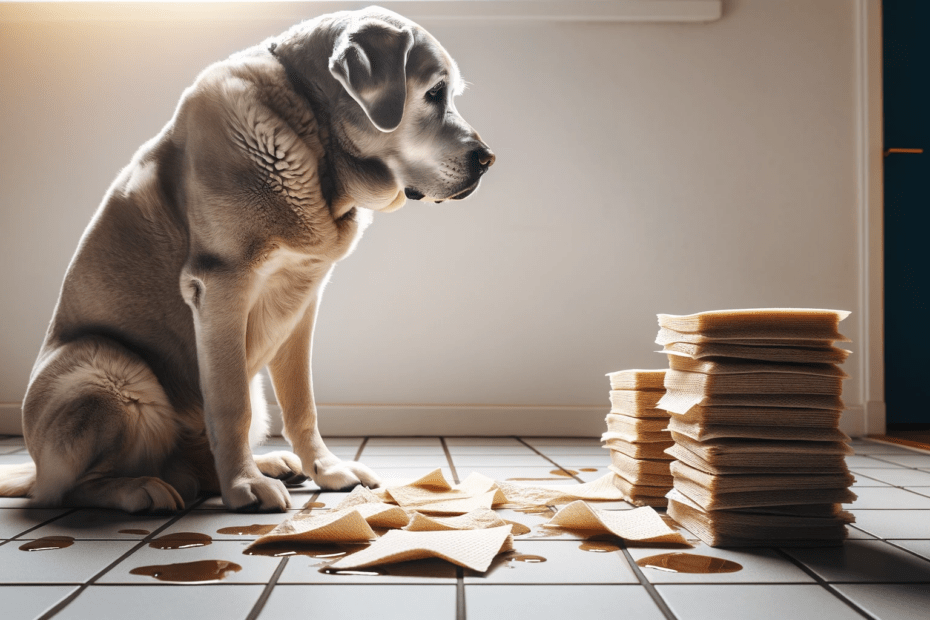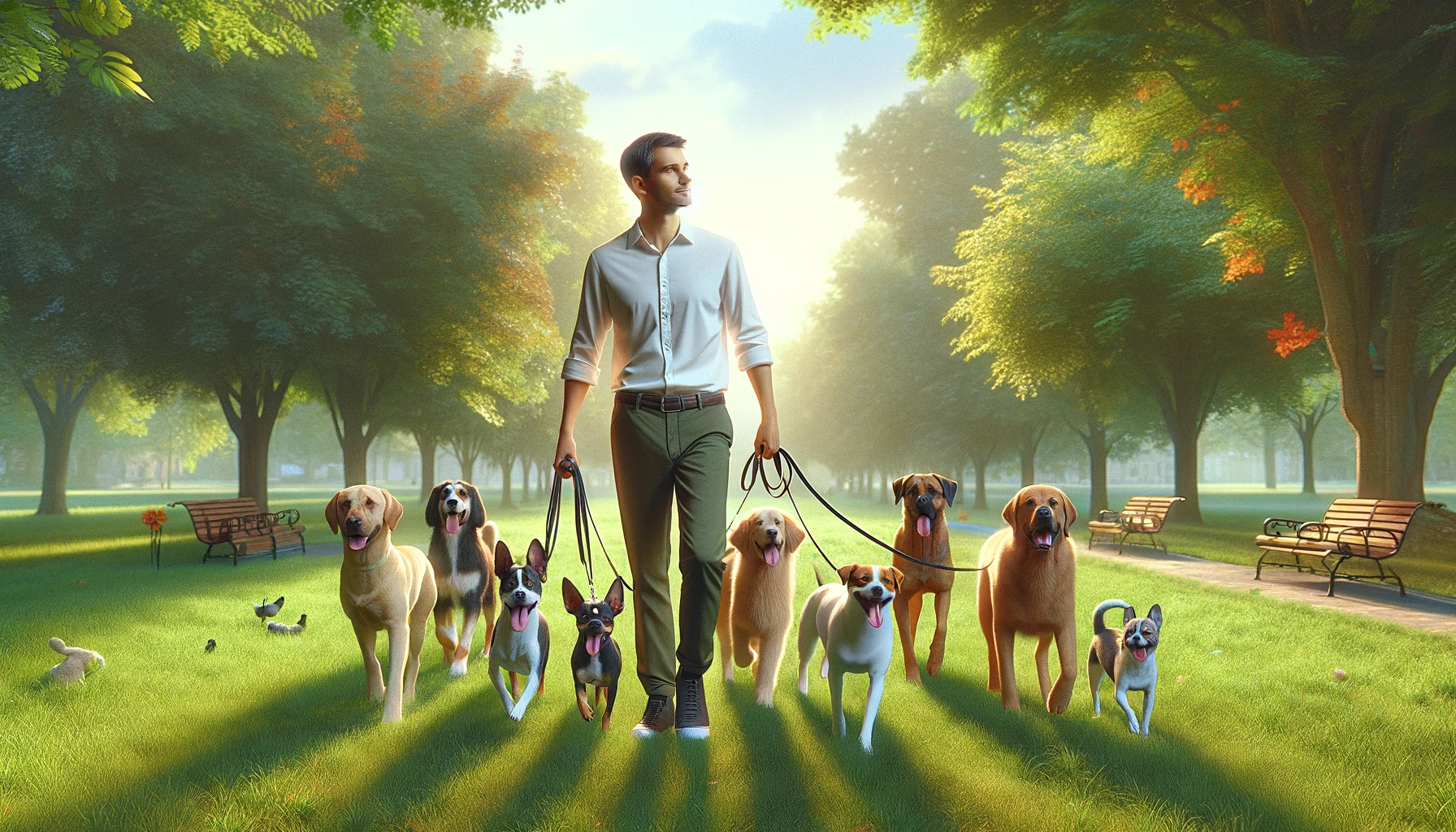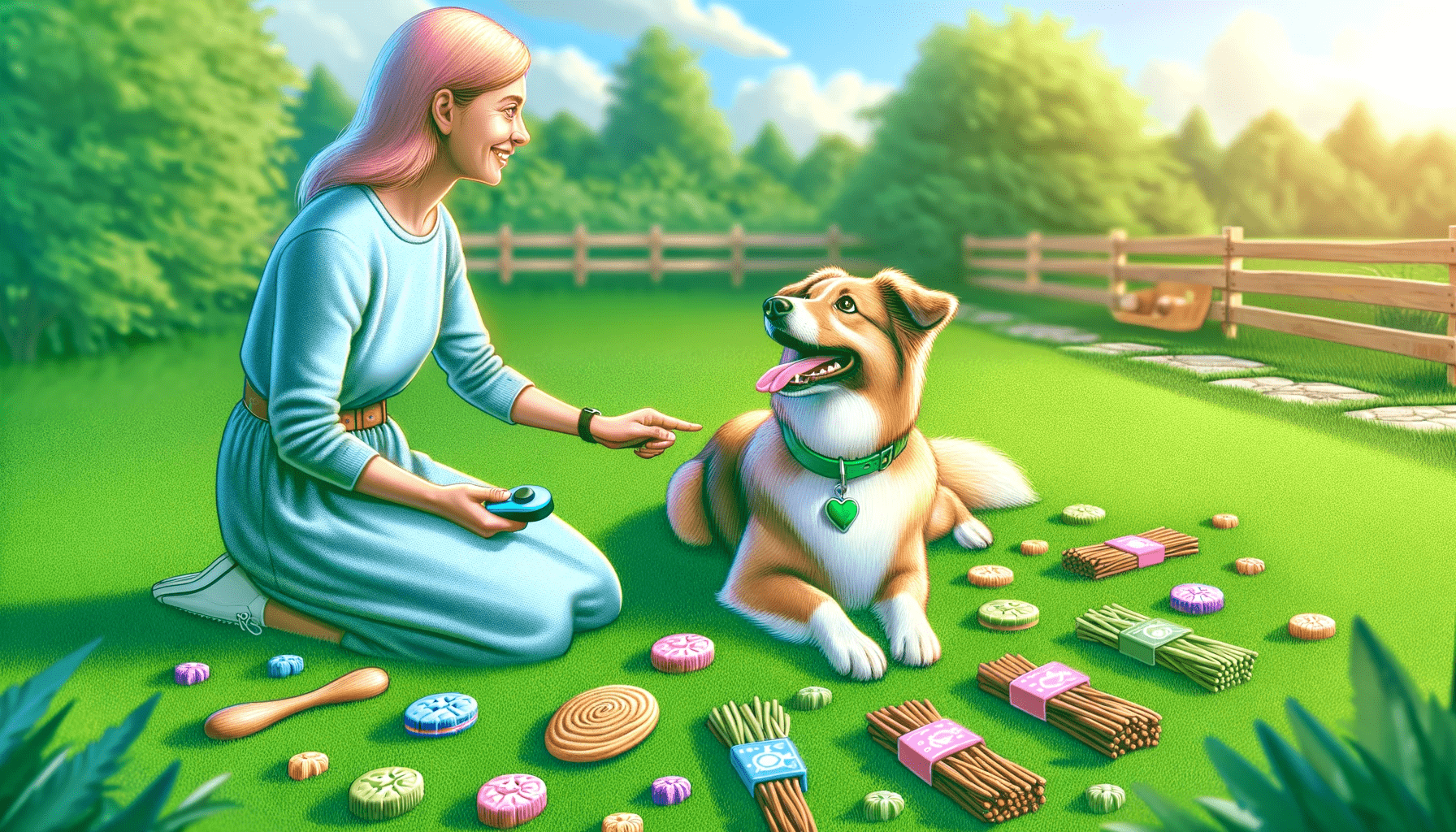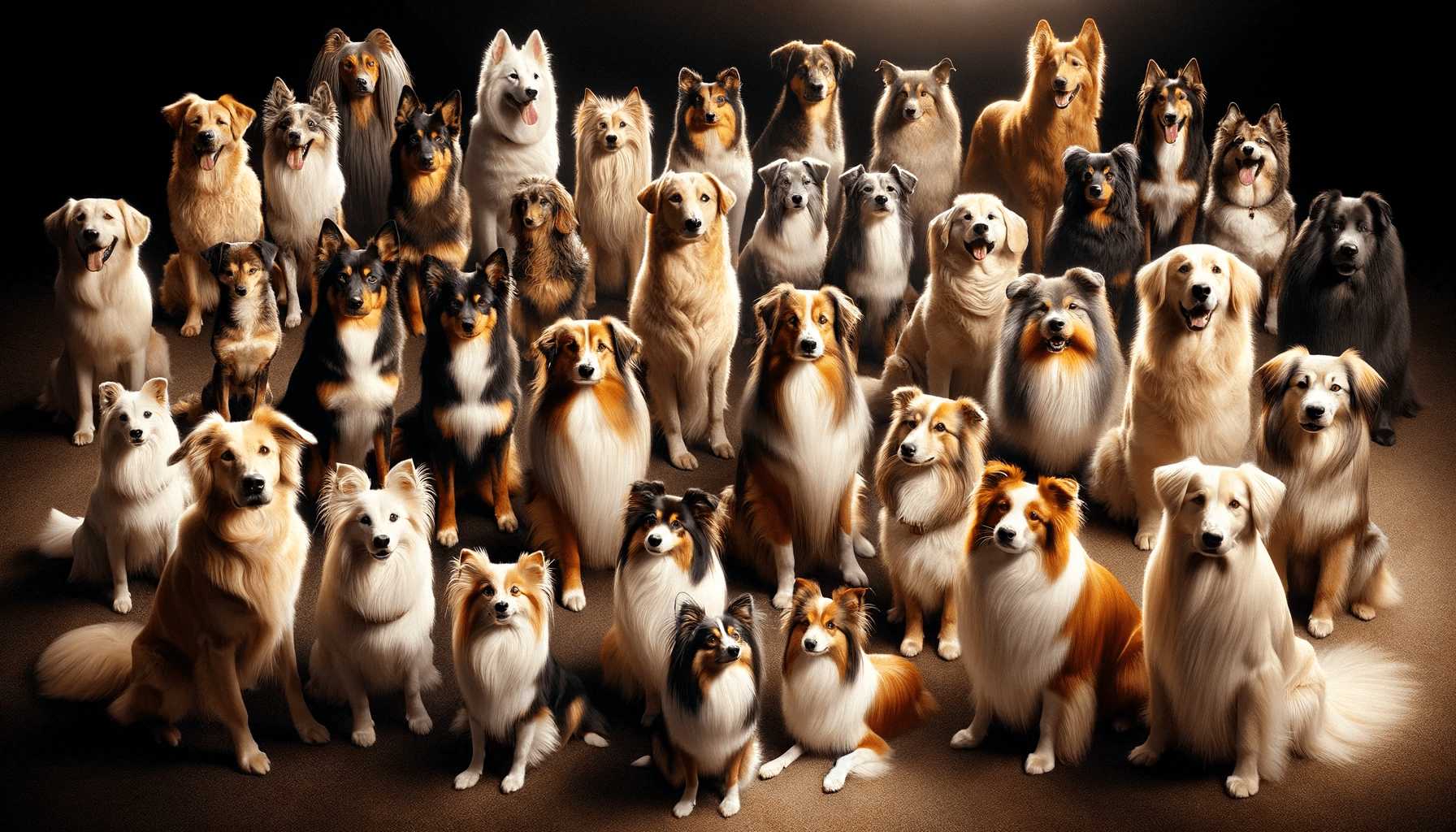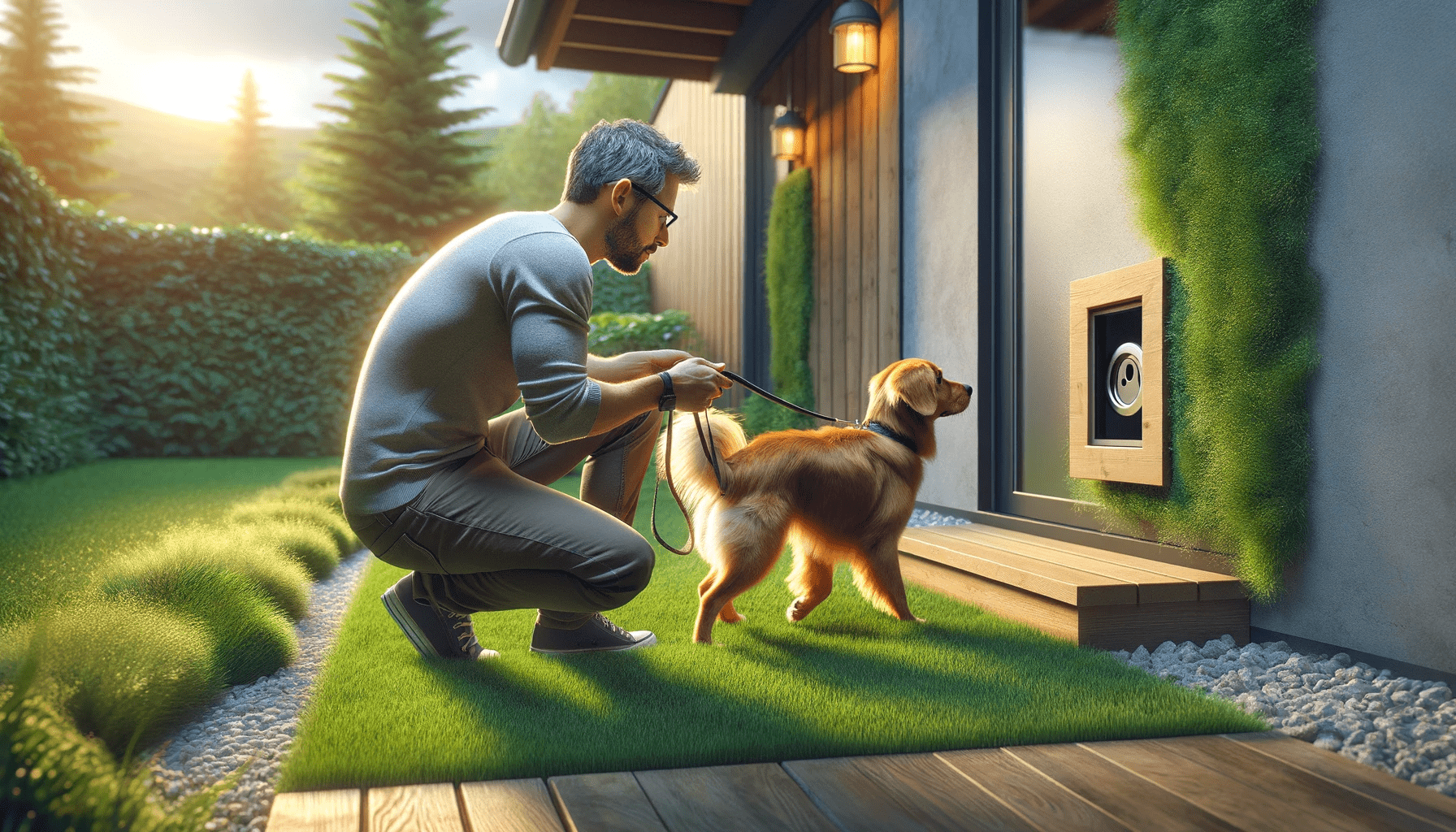Do you ever wonder why your older dog is having difficulty with potty training?
It's not uncommon for aging dogs to struggle in this area. In this article, we'll explore the reasons behind their challenges.
From age-related bladder control issues to lack of consistent training in their early years, there are various factors at play.
We'll also delve into medical conditions, changes in routine or environment, and behavioral issues that can impact their potty training progress.
Key Takeaways
- Hormonal changes and weaker muscles can contribute to age-related bladder control issues in older dogs.
- Lack of consistent training during their early years can lead to potty training difficulties later in life.
- Underlying medical conditions like urinary tract infections can impact potty training.
- Changes in routine or environment, as well as behavioral issues like anxiety and cognitive decline, can also affect older dogs' ability to be successfully potty trained.
Age-Related Bladder Control Issues
If you have an older dog, you may notice that they struggle with potty training due to age-related bladder control issues. As dogs age, they undergo various physiological changes that can affect their ability to control their bladder. One of the main factors contributing to this is hormonal changes. Just like humans, dogs experience hormonal fluctuations as they age, which can impact their bladder control. These hormonal changes can lead to an increased production of urine or a decreased ability to hold urine for extended periods.
Another factor that plays a role in age-related bladder control issues is decreased muscle tone. As dogs get older, their muscles, including the ones responsible for controlling the bladder, can become weaker and less efficient. This can result in a loss of muscle control and a reduced ability to hold urine.
It's important to note that age-related bladder control issues aren't a result of laziness or stubbornness on your dog's part. It's a natural consequence of the aging process. However, there are steps you can take to help manage this issue and make potty training easier for your older dog.
Providing frequent bathroom breaks, establishing a regular routine, and using protective measures such as dog diapers or puppy pads can all be helpful in managing age-related bladder control issues.
Lack of Consistent Training in Early Years
One possible reason why older dogs struggle with potty training is due to a lack of consistent training in their early years. Early socialization and positive reinforcement are crucial in establishing good bathroom habits in dogs. Here are three key points to consider:
- Early socialization: Dogs that aren't properly socialized during their critical developmental period, which is usually between 3 and 14 weeks of age, may struggle with potty training later in life. Socialization helps dogs understand appropriate behavior and develop a routine for eliminating waste. Without this foundation, dogs may not know where or when it's appropriate to go potty.
- Lack of consistent training: Consistency is key when it comes to potty training. Dogs need clear and consistent signals from their owners to understand what's expected of them. If training is sporadic or nonexistent during their early years, dogs may not have learned the appropriate cues for going potty outside.
- Positive reinforcement: Using positive reinforcement techniques, such as treats or praise, can greatly aid in potty training. Dogs learn best when they associate good behavior with rewards. Without consistent positive reinforcement, dogs may not have the motivation to learn and follow the desired potty training routine.
Medical Conditions Affecting Bathroom Habits
Older dogs may struggle with potty training due to the presence of medical conditions that affect their bathroom habits. Two common medical conditions that can impact a dog's ability to control their bladder and bowel movements are urinary tract infections (UTIs) and medication side effects.
Urinary tract infections occur when bacteria enter the urinary system and cause inflammation. This can lead to frequent urination, urgency, and accidents in the house. UTIs are more common in older dogs due to age-related changes in the immune system and hormonal balance. If your older dog is experiencing difficulties with potty training, it's important to rule out a UTI as the underlying cause.
Certain medications can also affect a dog's bathroom habits. Some medications, such as diuretics, increase urine production, resulting in more frequent urination and potential accidents. Other medications may cause constipation or diarrhea, making it difficult for the dog to control their bowel movements.
If you suspect that a medical condition is contributing to your older dog's potty training struggles, it's essential to consult with a veterinarian. They can perform a thorough examination, run diagnostic tests, and provide appropriate treatment. Addressing any underlying medical condition won't only help improve potty training but also ensure your dog's overall health and well-being.
Changes in Routine or Environment
When it comes to potty training, older dogs can struggle due to changes in their routine or environment. Dogs are creatures of habit, and any disruptions to their schedule or unfamiliar surroundings can cause confusion and anxiety, leading to difficulty in maintaining proper bathroom habits.
Here are three reasons why changes in routine or environment can affect an older dog's potty training:
- Changes in Schedule: Older dogs thrive on consistency and predictability. Any sudden alterations to their daily routine, such as a different feeding time or a shift in their exercise schedule, can throw them off balance. This disruption can make it challenging for them to anticipate when they need to go outside to relieve themselves.
- Unfamiliar Surroundings: Older dogs can become disoriented and stressed when placed in unfamiliar environments. This can happen when they're taken on vacation, moved to a new home, or even when their regular walking route is changed. The unfamiliar smells, sounds, and sights can be overwhelming, making it difficult for them to focus on their potty training.
- Inadequate Reinforcement: Changes in routine or environment can also lead to a lack of consistency in training reinforcement. When the dog's environment changes, their caregivers may unintentionally overlook or neglect to reinforce their potty training efforts. This can confuse the dog and hinder their progress in learning where and when to go.
Understanding the impact of changes in schedule and unfamiliar surroundings is essential when dealing with potty training struggles in older dogs. By providing stability, reassurance, and consistent reinforcement, caregivers can help their furry companions overcome these challenges and maintain proper bathroom habits.
Behavioral Issues Impacting Potty Training Progress
If your older dog is struggling with potty training, it's important to address the behavioral issues that may be impacting their progress. One common behavioral issue that can lead to accidents is anxiety. Dogs, just like humans, can experience anxiety, and this can manifest as accidents in the house. Anxiety related accidents may occur when your dog is feeling stressed or fearful, such as during thunderstorms or when left alone for long periods of time. It's important to identify and address the underlying causes of anxiety in order to help your dog overcome their potty training difficulties.
Another behavioral issue that can impact potty training progress in older dogs is cognitive decline. As dogs age, they may experience a decline in cognitive function, which can affect their ability to remember their potty training routine. They may forget the signals that indicate they need to go outside or have difficulty controlling their bladder and bowels. It's important to be patient and understanding with your older dog during this time, as they may need additional support and reinforcement to maintain their potty training skills. Consistency and positive reinforcement can help mitigate the impact of cognitive decline on potty training.
Frequently Asked Questions
Can Older Dogs Be Retrained to Improve Their Bladder Control?
You can retrain older dogs to improve their bladder control through bladder control exercises and positive reinforcement techniques. By consistently practicing these exercises and rewarding their progress, you can help them overcome potty training struggles.
What Are Some Common Medical Conditions That Can Affect a Dog's Bathroom Habits?
Common medical conditions, such as urinary tract infections or bladder stones, can affect a dog's bathroom habits. In addition to medications, alternative training methods like crate training or frequent potty breaks may help improve bladder control.
How Long Does It Usually Take for an Older Dog to Be Fully Potty Trained?
On average, it takes older dogs a few weeks to a few months to be fully potty trained. Effective training techniques, such as consistency, positive reinforcement, and patience, can help speed up the process.
Can a Change in Environment or Routine Cause a Previously Potty-Trained Dog to Have Accidents?
A change in routine or environment can cause a previously potty-trained dog to have accidents. Dogs rely on consistency and familiarity, so disruptions to their routine or surroundings can lead to confusion and regression in their bathroom habits.
Are There Any Specific Behavioral Issues That Can Hinder Potty Training Progress in Older Dogs?
When it comes to potty training progress in older dogs, behavioral issues can play a significant role. Factors such as anxiety, medical conditions, or marking territory can hinder their ability to learn or maintain proper potty habits.
Conclusion
In conclusion, older dogs may struggle with potty training due to:
- Age-related bladder control issues
- Lack of consistent training in their early years
- Medical conditions affecting bathroom habits
- Changes in routine or environment
- Behavioral issues impacting their progress
Understanding these factors can help owners provide effective training and address any underlying health or behavioral concerns. By providing patience, consistency, and appropriate care, owners can help their older dogs improve their potty training skills and maintain a healthy and comfortable lifestyle.
